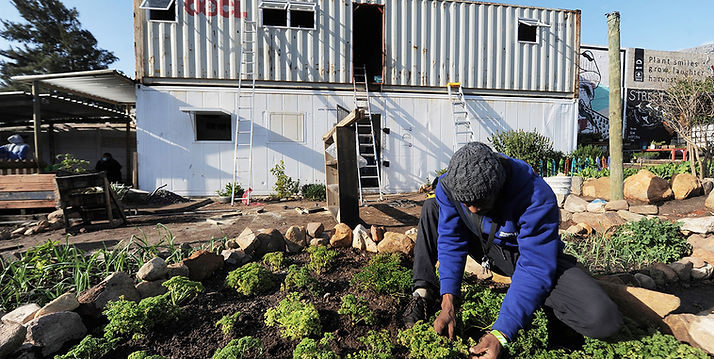
Re-integrating former combatants into post-conflict African society
Ploughshares
from Weapons
Words by Russel Wasserfall Pictures by Stefan Weiss
While the world reels from the horrors of conflict in the Ukraine and Palestine, the numerous and often brutal ’little’ wars that periodically ignite across Africa tend to receive very little coverage. Of course these are often fought in places so remote and undeveloped that they are practically invisible to media. Their impact on the societies in which they occur though are devastating, with their affects spanning generations.

The conflicts that have raged across Africa number almost as many as the countries it is home to. But what happens to the soldiers – and their assault rifles when the war is over?
While the world reels from the horrors of conflict in the Ukraine and Palestine, the numerous and often brutal ’little’ wars that periodically ignite across Africa tend to receive very little coverage. Of course these are often fought in places so remote and undeveloped that they are practically invisible to media. Their impact on the societies in which they occur though are devastating, with their affects spanning generations.
Insurgencies or civil wars may end, but the weapons, devastated lives and ruined infrastructure remain. There is also the spectre of dispossessed and aimless former soldiers – many just children – roaming the countryside preying on citizens as bandits. Hence the key role of Disarmament, Demobilisation & Reintegration (DDR) programmes as a means to re-integrate former combatants into society so they can play an active role in building a lasting peace.

Among the many skills or trades that can be taught to former combatants, among the simplest is market gardening. Providing food for a family or a community can help build trust and purpose.
One such project is the Angola DDR Programme, which has made significant strides in reintegrating former combatants into civilian life. Although the war there ended in 2002, there continues to be vocational training, education, and psychosocial support in which former fighters acquire the skills and mindset needed to transition from conflict to peace.
Similarly, in Mozambique, the DDR programme has been instrumental in the reintegration of ex-combatants from the country's long-running civil war. By providing training in agriculture, carpentry, and other trades, the programme has empowered former fighters to build a new life for themselves and contribute positively to society. Mozambique's DDR programme, known for its multifaceted approach, extends beyond conventional methods.

Mozambique’s Gorongosa coffee project trains people in all aspects of coffee cultivation, bringing a viable and sought-after product to market.
One notable initiative is the Gorongosa Coffee farming programme, which not only provides vocational training but also empowers ex-combatants and communities affected by conflict to cultivate coffee as a sustainable livelihood. This innovative project not only supports reintegration but also contributes to economic growth and community development.
In Zimbabwe, DDR efforts have focused on assisting internally displaced persons (IDPs) affected by conflict. Through the provision of shelter, food, and livelihood support, the programme has helped IDPs rebuild their lives and reintegrate into their communities. But to rebuild a society with a sense of purpose and aspirations for a better tomorrow requires more than hand-outs. Meaningful work, and making a contribution to society are also vital components.

In the Southern African region, the war on wildlife waged by ruthless poachers provides an opportunity for former combatants to make a meaningful contribution through training as game wardens or as part of anti-poaching units.
Teaching people to grow edible crops, or in the case of the Gorongosa coffee to process the crop and take it to market is a step in the right direction. The ability to feed your family or the wider community, and earn a living doing so definitely restores hope. In other parts of the required to Across the Southern African Development Community – which includes Zimbabwe, Angola, Mozambique and South Africa – programmes are in place to retrain ex-soldiers as game guards or anti-poaching units.
The process requires dedication and funding, but most of all perseverance. As in the case of Angola where the war has been over for two decades, it takes time to heal the wounds of conflict. Ensuring that both fighters and communities have the means, and a reason, to rebuild is invaluable for the future of Africa and indeed any country shredded by war.
South African writer, photographer and editor Russel Wasserfall has worked in the media space for over 35 years. His work is mainly in the arenas of food and travel and has appeared in more than twenty books and dozens of magazines. Wasserfall has run bars and restaurants, including his award-winning South African restaurant The Table at De Meye, and consults to restaurant start-ups on innovative food concepts. He runs a weekly podcast on the restaurant and food scene in his Cape Town home called A Table in the Corner.

